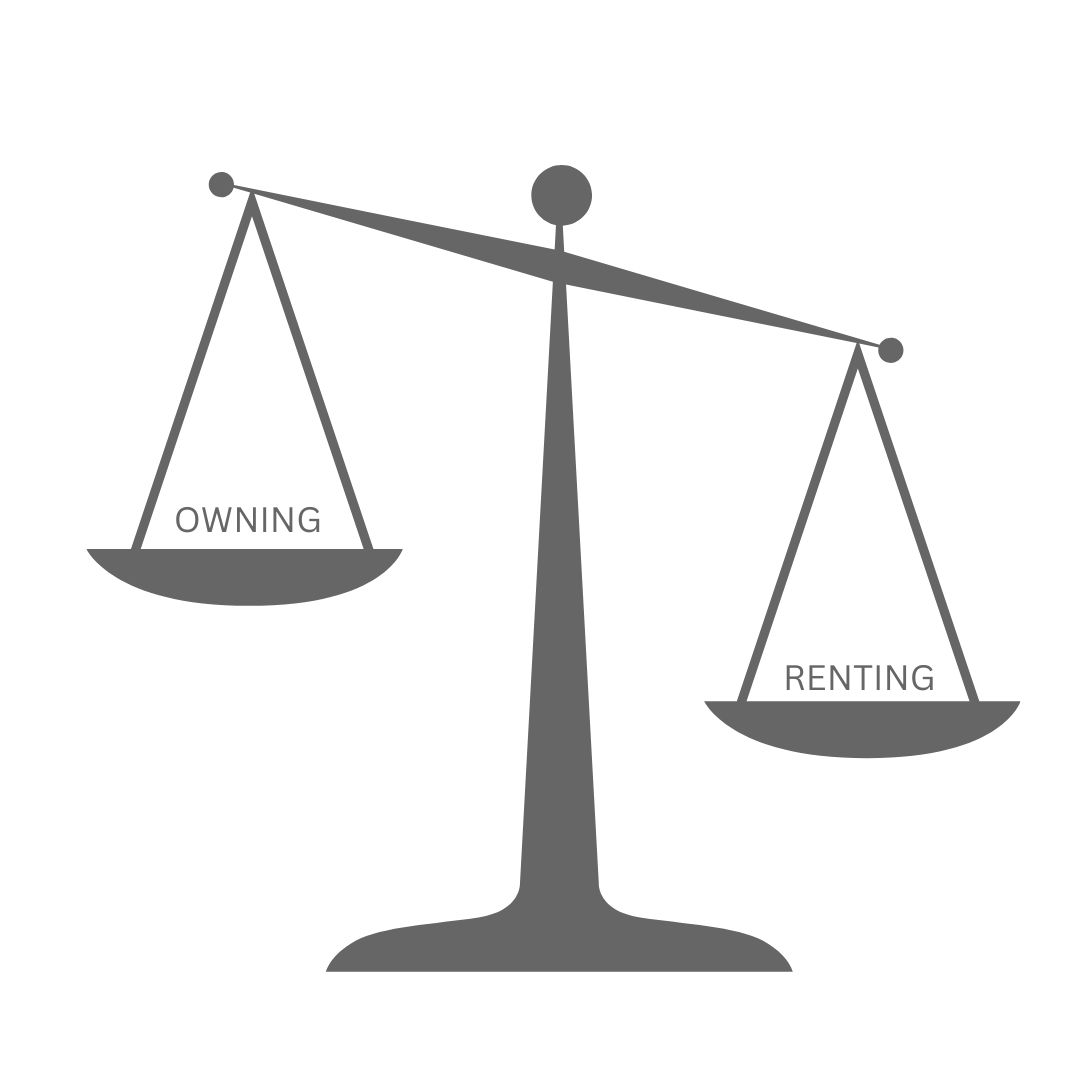The Real Cost of Waiting
If you’re considering continuing to rent, maybe you think it’s best to wait until prices come down, or maybe you’re waiting for interest rates to come down. Or maybe you just don’t see the value in taking on the responsibility of owning a home. But did you know home ownership is one of the largest factors in building wealth? It is the differentiator between those that bought and those that continue to rent. How big of a difference can it really make, you ask? Let’s look at the tale of two friends, Harry and Randy, and really dive into the numbers to see what a difference buying a home now and continuing to rent will make in a 7-year period.
Harry Homeowner just purchased his new home for $400,000. He used FHA financing and put 3.5% down, or $14,000. His loan would be $392,755 because of the up-front 1.75% mortgage insurance that gets rolled into the loan on FHA loans. His monthly payment would be:
Principal & Interest – $2,613
PMI – $273.42
Estimated Taxes & Insurance – $474
Total payment = $3,360.76
After 7 years, Harry will have paid $181,546.66 in interest and $34,171.22 in principal, leaving a loan balance of $351,829.02. Harry has gained $34,171.22 in principal paydown, which can also be looked at as a forced savings. But wait – it gets better. Harry will also gain equity. The average equity increase annually is 4% (in metro Atlanta, it’s been 5% average.) After 7 years at an average of 4% annual appreciation, Harry’s home is now worth $526,327. That’s a gain of $126,327. Adding in the principal paydown of $34,171, Harry is sitting on a nice $160,498 gain. Harry could access some of this equity through a Home Equity Line of Credit and perhaps purchase an investment property (smart choice Harry!) or decide it’s time to upgrade and roll those gains into a new home and start the process over.
Another scenario that would likely have occurred for Harry is that because of the gain in the property value and equity, the PMI would drop off – most likely Harry would have refinanced his house and the payment would have reduced by $300-$400, so Harry’s payment in year 7 would be estimated to be around $2,900.
Randy Renter is renting a cool two-bedroom apartment in a hip, walkable location for just $2,000/mo. Instead of making a mortgage payment, Randy is a disciplined dude and he is saving the difference in his rent payment and what his friend Harry is making in a mortgage payment. So he’s saving $1,360 per month.
Randy is smart with his money, and he’s invested it in a mutual fund and was able to obtain an average annual return of 12%. Randy would now be sitting on a cool $167,000.
Aha you say: “So buying is not the right move! I’d actually have more money by saving money by renting (assuming you’re as disciplined as Randy) and not buying.”
However, we didn’t factor in that rent continues to increase every year. So in reality, Randy’s fixed cost of living continues to increase, while Harry’s fixed housing cost is locked in (and likely reduced when he refinances). Let’s rerun this scenario factoring the rent increases and consequently the savings decreases for Randy.
Average rents increase by 6% per year in our area. Randy’s two bedroom apartment rent looks like this over 7 years:
Year 1 $2,000
Year 2 $2,120
Year 3 $2,247
Year 4 $2,382
Year 5 $2,525
Year 6 $2,676
Year 7 $2,837
At the end of 7 years, again Randy is super disciplined and did not touch any of his savings, he now has $138,855 saved.
Let’s compare.
Harry has $160,498 in equity/net worth.
Randy has $138,855 in equity/net worth.
Harry has a fixed monthly housing payment.
Randy also has a monthly payment that will continue to rise and is beyond his control.
Randy can buy too, but the same house Harry bought 7 years ago will cost Randy a lot more.
It has been said “the best time to plant a tree was 30 years ago, the second-best time is today.” The same can be said of real estate. Don’t wait to buy real estate, buy real estate and wait!


